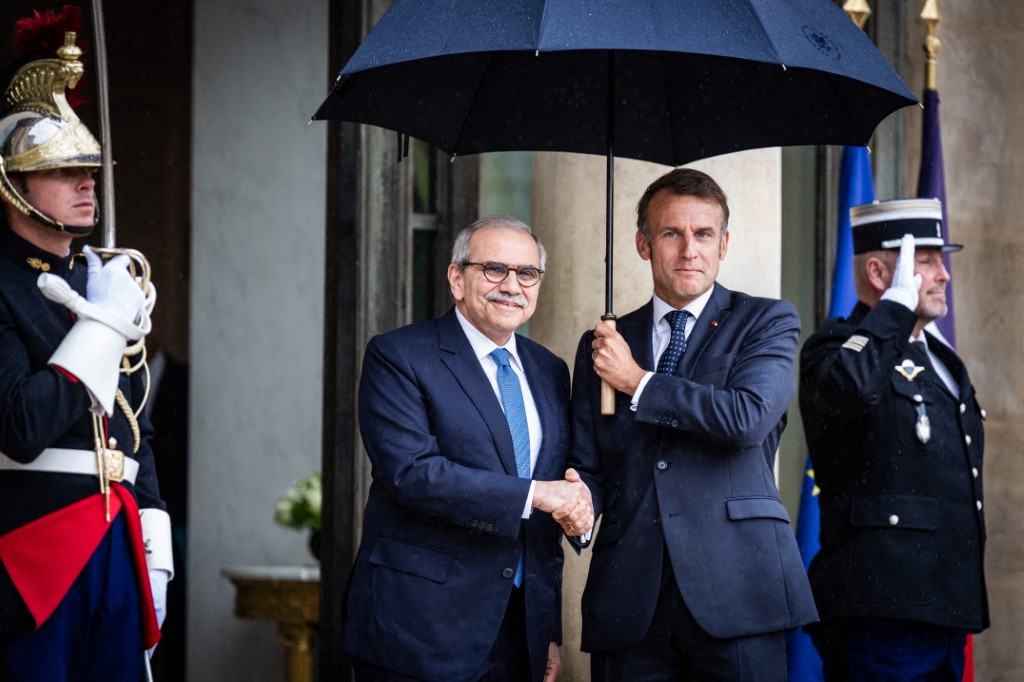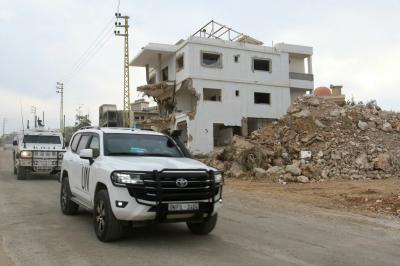“Better late than never.”
This well-known saying, with its English roots, perfectly fits the Lebanese political authority today. After six months of hesitation, the government has finally agreed to place the issue of “monopolizing arms in the hands of the state” on the Cabinet’s agenda — to reach a public resolution and set a timetable for the withdrawal of all weapons not under the control of the state authority, whether Lebanese or non-Lebanese.
Yet, the government’s unease over the matter prompted it to postpone the Cabinet session — originally scheduled for July 31st — to Tuesday August 5th, citing the overlap with a parliamentary session. In truth, the decision was a clear attempt to “pass the cup” and delay the moment of reckoning. But the government found itself caught between two sources of pressure: an internal push from key political forces within the cabinet, and external pressure from the U.S., Saudi Arabia, and France — in addition to the constant military pressure from Israel.
Regardless of the reported differences within the “ruling trio” — with Prime Minister Nawaf Salam pushing for a decisive session, President Joseph Aoun advocating caution, and Speaker Nabih Berri expressing reservations — the three no longer have the luxury of buying time. Washington, Riyadh, and Paris have delivered firm, unequivocal messages: the waiting game is over.
It is clear that it is in the president’s interest in particular to shift the burden of the “weapons” issue from his personal shoulders to the full authority of the executive branch. This comes especially after his own admission that his dialogue with “Hezbollah” over several months has yielded only “slow progress” — a term that in the language of political negotiations is often a polite cover for deadlock or failure.
What seems to have truly jolted hesitant Lebanese officials into action is not only the firmness of the Americans and Saudis, but particularly the shift in the French stance.
For the past five years, Paris had approached the issue of “Hezbollah’s” arms with a relatively soft touch, prioritizing reforms and financial support conferences. But France has now concluded that the true priority for rescuing Lebanon lies in restoring the state’s sovereign decision-making power and its exclusive authority over weapons, war, and peace. It has also been realized that renewing UNIFIL’s mandate this time will not follow the usual easy procedure, but will come with urgent conditions.
Prime Minister Nawaf Salam learned of this significant French shift directly from President Emmanuel Macron during their recent meeting. He then relayed it to his counterparts, Aoun and Berri. Faced with this hard reality, the three have acquiesced, albeit reluctantly. They are now attempting one last tactic to buy time: “waiting” for the response of U.S. envoy Tom Barrack. This, even though Barrack has already made his position clear — both in a tweet calling for a move “from words to action” and in statements by the new U.S. ambassador to Lebanon, Michel Issa, before the Senate Foreign Relations Committee, affirming that disarmament is “not an option, but a necessity.”
Before arriving at this difficult juncture, there had been an attempt to ease international pressure — or placate decision-making capitals — through the Military Court’s sentencing to death of the killer of the Irish UNIFIL soldier in December 2022, a member of “Hezbollah.” It is no secret that this verdict was pre-approved by the Amal–Hezbollah duo in exchange for dramatically reduced sentences for six other defendants. There is still controversy over whether the convicted killer will be handed over, given the precedent in similar cases.
Yet the government’s move to resolve the “arms monopoly” issue with a timetable for implementation is fraught with two risks.
The first is the entrenched division within the Cabinet between those demanding disarmament and those opposing it, a rift that could make a decisive resolution impossible and potentially shake the government to its core — even to the point of collapse.
The second is the possibility of resorting to ambiguous or conditional language — as previous governments have done in their verbal maneuvering — which would ultimately produce the same result: political instability.
It is no secret that international and Arab powers closely monitoring the “ruling trio” will not turn a blind eye to either scenario: an outright refusal to hand over weapons, whether in principle or by invoking indefinite deadlines, or hiding behind vague and elusive formulations of the required decision.
To end this damaging ambiguity and fatal hesitation, the authorities have no choice but to stop hiding behind the excuse of “fear of civil war.” For its part, “Hezbollah,” which stubbornly refuses to relinquish its weapons, must weigh the looming dangers and find the courage to admit the futility of its arsenal — and the grave harm it brings to itself and to Lebanon — even if Iran continues to exploit it as one of its remaining regional bargaining chips in nuclear negotiations.
What is certain is that a late decision by both sides is better than remaining stuck in a state of no decision at all.
Please post your comments on:
[email protected]
 Politics
Politics













